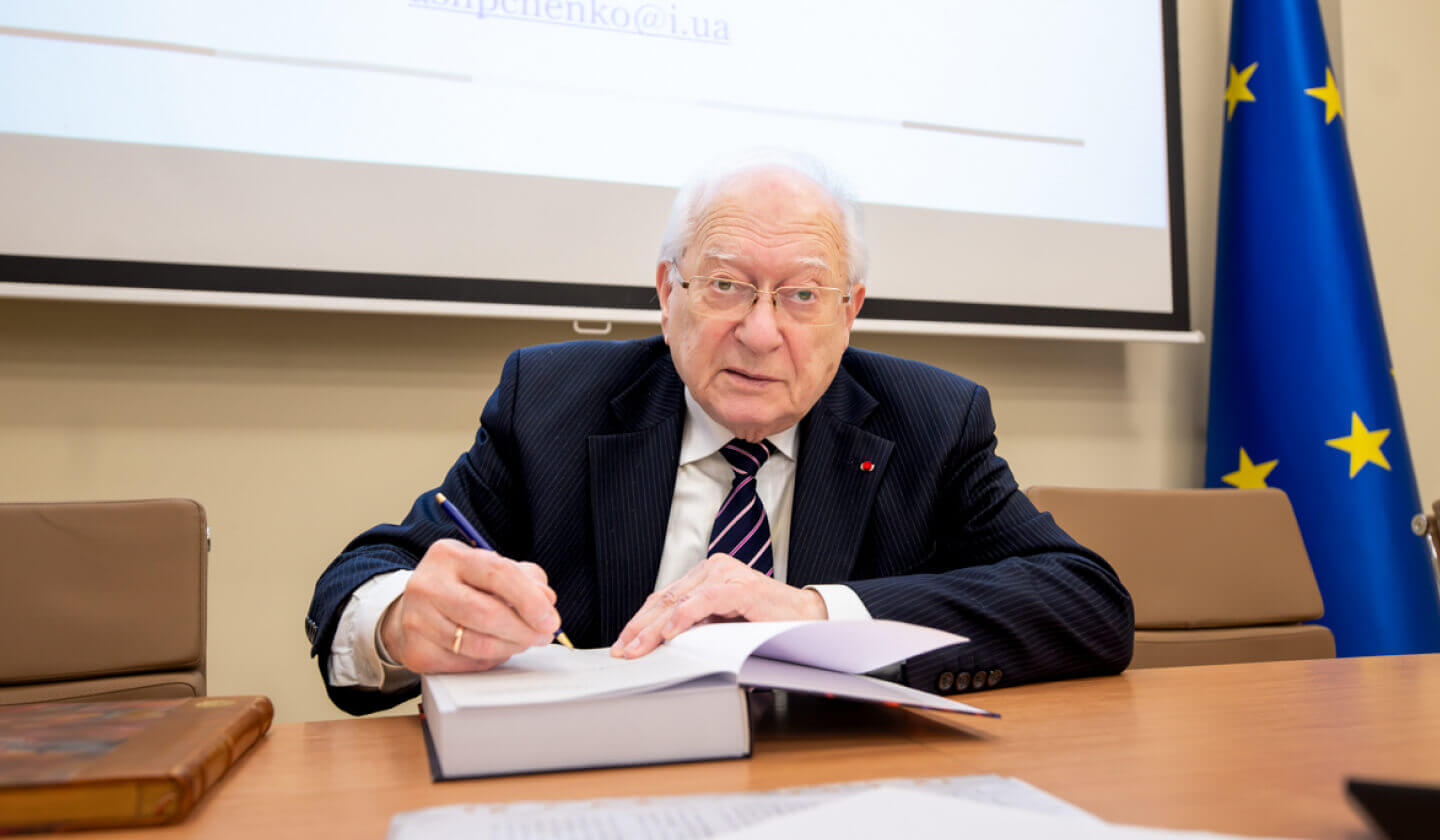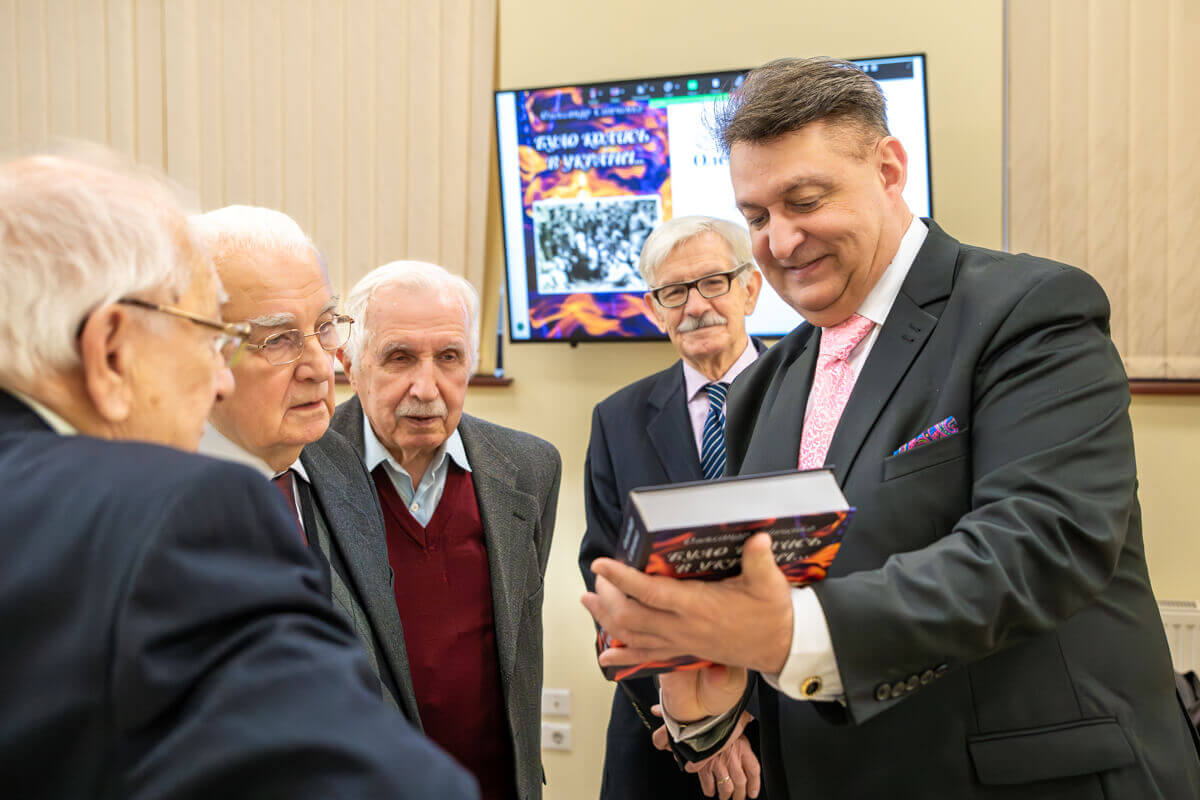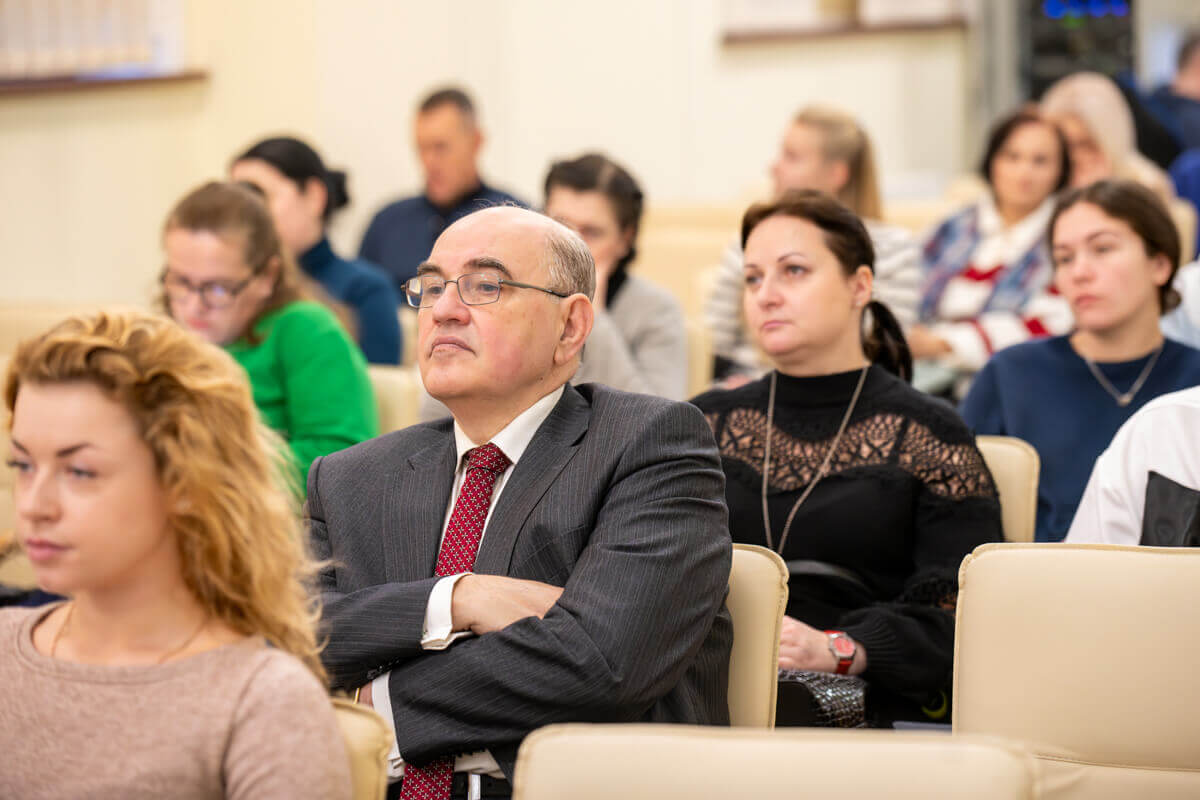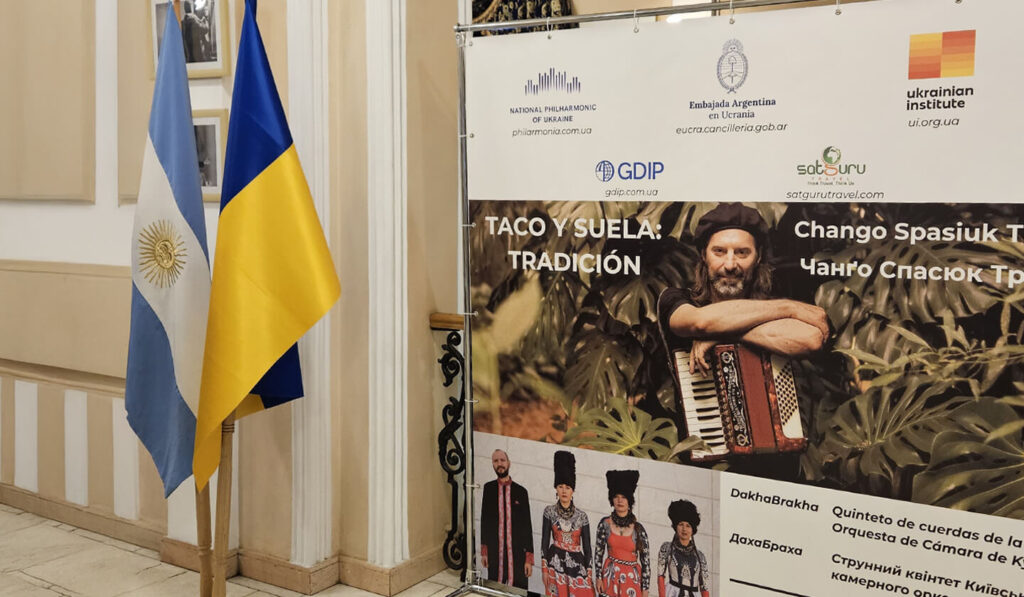On Tuesday, 24 December 2024, the GDIP Media Center hosted a presentation of the There Was a Time in Ukraine… book of historical essays by Oleksandr Slipchenko, a veteran of diplomatic service, Ambassador Extraordinary and Plenipotentiary, writer, Permanent Delegate of Ukraine to UNESCO.
The author has been working on this book for the past two years. This is the seventh work by the Ukrainian diplomat, but perhaps the most important in his literary career. Unlike his previous publications, this book is entirely devoted to the history of Ukraine and covers its ancient, modern and contemporary periods. There Was a Time in Ukraine… is a collection of essays — a genre that allows for (provided that the widely known historical outline is preserved) both one’s own interpretation of established facts and a personalised, sometimes emotional, assessment of significant figures and their actions, and the inclusion of poetic or memoir elements. The presented publication is also relevant today, at a time when Ukraine, which is currently at war, is experiencing a growing public interest in finding unbiased approaches and assessments of events and actors in its history that would correspond to the current realities of the national consciousness of Ukrainians.
To mark this occasion, Pavlo Kryvonos, GDIP Director-General, congratulated the author on the publication of his new book and presented him with memorable gifts, including the GDIP award and branded products of the enterprise.
Oleksandr Slipchenko opened the event by thanking the audience for attending the presentation. Then he spoke in more detail about the new book, its content, and described the process of studying rare historical sources, the most interesting elements of which were included in the publication:
‘Today, we have numerous historical books, mostly written by scholars and teachers. My book consists of 25 essays, presented in chronological order from the time of the Ruriks, drawing analogies with current events. This is not a scientific compilation or a historical textbook, rather, it combines historical documents and truths with my own scientific hypotheses and personal analysis of phenomena and events through careful adherence to historical facts. Traditionally, we have studied history vertically: event by event in a limited area of a particular state. My approach in the book is horizontal. Within one year, I analyse an event and draw attention to other processes that took place in a certain period.’
Veterans of the Ukrainian diplomatic service, Ukrainian diplomats, scholars and students attended the meeting with the author.
The book presentation was followed by the informal communication, where everyone congratulated the author on the successful release of the new publication.









